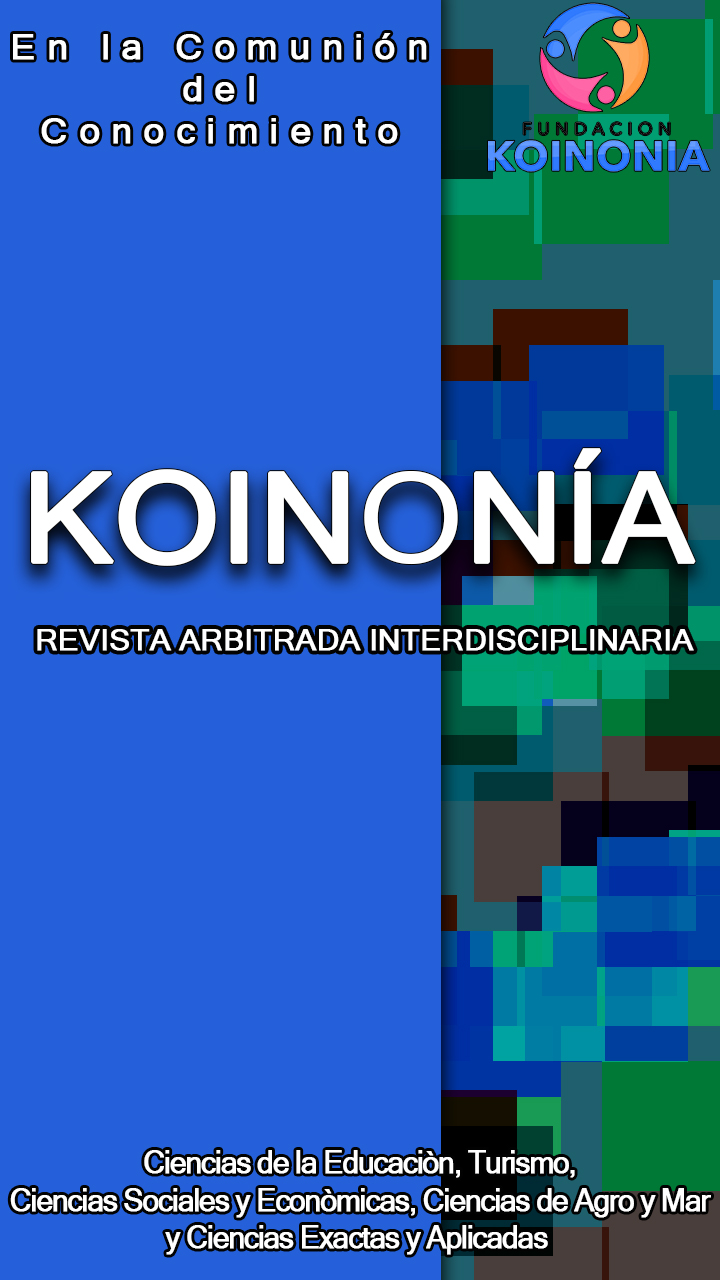Impact of virtual reality on the learning process in high school students
DOI:
https://doi.org/10.35381/r.k.v9i17.3176Keywords:
Impact, virtual reality, high school students, (UNESCO Thesaurus).Abstract
The purpose of this research was to analyze the impact of virtual reality on the learning process in high school students. For the methodology, we used a descriptive non-experimental quantitative field approach. A survey was applied to 20 students and 20 teachers chosen intentionally from different educational institutions; written records were also kept on the observations made. The results showed that the interviewees were favorably involved with the use of virtual reality, noting a better performance in their training. Therefore, it was concluded that virtual reality constituted a motivating and effective tool for the learning progress of students at the baccalaureate level.
Downloads
References
Alejandro, M. (2021). E-learning management process and its effects on the community. [Proceso de administración de la educación virtual y sus efectos en la comunidad]. Journal of business and entrepreneurial studies, 5(4), 19-31. https://n9.cl/j14be
Anacona, J., Millán, E., y Gómez, C. (2019). Aplicación de los metaversos y la realidad virtual en la enseñanza. [Application of metaverses and the virtual reality in teaching]. Entre Ciencia e Ingeniería, 13(25), 59-67. https://n9.cl/twvx1
Barráez, D. (2022). Metaversos en el Contexto de la Educación Virtual. [Metaverses in the Context of Virtual Education]. Revista Tecnológica-Educativa Docentes 2.0, 13(1), 11-19. https://n9.cl/6tkq9
Berns, A., y Reyes, S. (2021). A Review of Virtual Reality-Based Language Learning Apps. [Una revisión de apps de realidad virtual para el aprendizaje de idiomas]. Iberoamerican Journal of Distance Education, 24(1), 158-170. https://n9.cl/1stzi
Campos, M., Navas, M., y Moreno, A. (2020). Realidad virtual y motivación en el contexto educativo: Estudio bibliométrico de los últimos veinte años de Scopus. [Virtual reality and motivation in the educational context: Bibliometric study of the last twenty years from Scopus]. Alteridad. Revista de Educación, 15(1), 47-60. https://n9.cl/16adl
Castro, S., Guzmán, B., y Casado, D. (2007). Las Tic en los procesos de enseñanza y aprendizaje. [ICT in learning-teaching process]. Laurus, 13(23), 213-234. https://n9.cl/lwnj3
Díaz, J. (2012). Simulación en entornos virtuales, una estrategia para alcanzar "Aprendizaje Total", en la formación técnica y profesional. [Simulation in virtual environments, a strategy to achieve "Total Learning" in technical and professional training]. Revista Latinoamericana de Estudios Educativos (México), XLII(2), 49-94. https://n9.cl/2xjfb
Escontrela, R., y Stojanovic, L. (2004). La integración de las TIC en la educación: Apuntes para un modelo pedagógico pertinente. [The integration of ICTs in education: Notes for a pertinent pedagogical model]. Revista de Pedagogía, 25(74), 481-502. https://n9.cl/y4edv
Flores, J., Camarena, P., y Avalos, E. (2014). La realidad virtual, una tecnología innovadora aplicable al proceso de enseñanza de los estudiantes de ingeniería. [Virtual reality, an innovative technology applicable to the teaching of engineering students] Apertura, 6(2), 1-10. https://n9.cl/2qn01
García, M., Reyes, J., y Godínez, G. (2017). Las Tic en la educación superior, innovaciones y retos. [The ICT in higher education, innovations and challenges]. RICSH Revista Iberoamericana de las Ciencias Sociales y Humanísticas, 6(12), 1-19. https://n9.cl/p6aim
Garlisi, L., González, J., Herman, C., Aveiro, T., y Valladares, M. (2022). Impacto de la virtualización de la educación médica en el rendimiento académico en 2020. [Impact of virtualization of medical education on academic performance in 2020]. Revista Cubana de Medicina Militar, 51(2), e1898. https://n9.cl/ytijd
Olivar, A., y Daza, A. (2007). Las tecnologías de la información y comunicación (TIC) y su impacto en la educación del siglo XXI. [The technologies of the information and communication (tic) and its impact in the education of century XXI]. Negotium, 3(7), julio, 2007, 21-46. https://n9.cl/bx8ku
Pérez, C. (2008). Realidad Virtual: Un Aporte Real para la Evaluación y el Tratamiento de Personas con Discapacidad Intelectual. [Virtual reality: a real contribution for the evaluation and treatment of people with intellectual disability]. Terapia psicológica, 26(2), 253-262. https://n9.cl/ptwu1
Rubio, J., Neira, T., Molina, D., y Vidal, C. (2022). Proyecto UBOT: asistente virtual para entornos virtuales de aprendizaje. [UBOT project: virtual assistant for virtual learning environments]. Información tecnológica, 33(4), 85-92. https://n9.cl/a1w57
Sousa, R., Campanari, R., y Rodrigues, A. (2021). La realidad virtual como herramienta para la educación básica y profesional. [Virtual reality as a tool for basic and vocational education]. Revista Científica General José María Córdova, 19(33), 223-241. https://n9.cl/l8psz
Published
How to Cite
Issue
Section
License
Copyright (c) 2024 Jostin Ovidio Morales-Cadena, Milina-del-Carmenz Alejandro-Muñoz, Lila Maribel Moran-Borja

This work is licensed under a Creative Commons Attribution-NonCommercial-ShareAlike 4.0 International License.
CC BY-NC-SA : Esta licencia permite a los reutilizadores distribuir, remezclar, adaptar y construir sobre el material en cualquier medio o formato solo con fines no comerciales, y solo siempre y cuando se dé la atribución al creador. Si remezcla, adapta o construye sobre el material, debe licenciar el material modificado bajo términos idénticos.
OAI-PMH URL: https://fundacionkoinonia.com.ve/ojs/index.php/revistakoinonia/oai.









